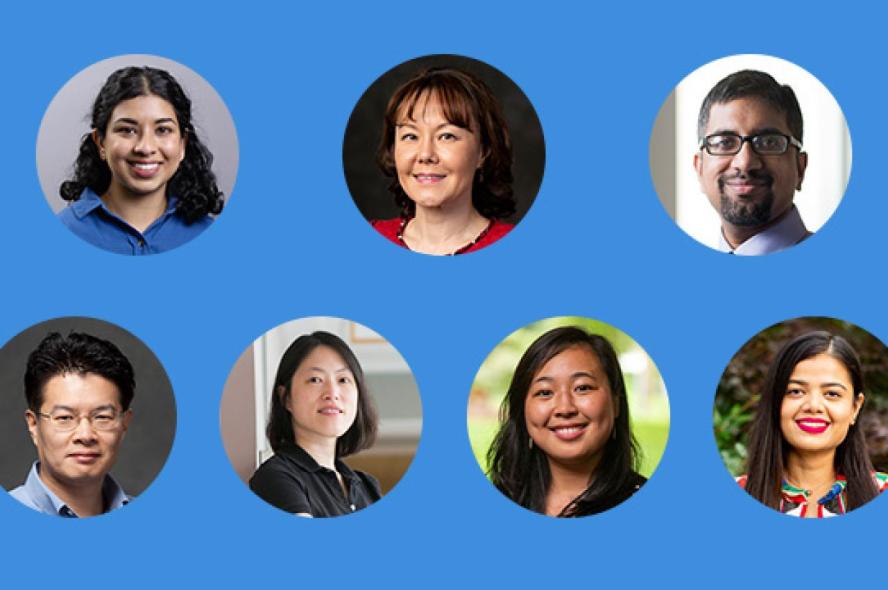-
About
- Departments & Offices
-
Academics
- Physician Assistant
- Special Master’s (MBS)
-
Admissions & Financial Aid
- Tuition & Fees
-
Student Life
-
Research
- Research Labs & Centers
-
Local & Global Engagement
- Global Health Programs
- Community Engagement
Building a Life’s Work on the Foundation of Family Legacies
Asian American and Pacific Islander faculty members investigate their backgrounds to find the roots of their academic and intellectual pursuits

In celebration of Asian American and Pacific Islander Heritage Month, Tufts Now asked faculty members to share their thoughts on the connections between their work and their sense of identity. They explained the ways in which their careers grew from their cultural and familial roots.
Inspired by Childhood Visits to India
For me, global health is personal. As an Indian American, I took frequent trips to India during childhood, and those inspired me to make contributions that might help solve some of the challenges there. There are three pillars to my work. First, research in two main areas: social and environmental health in urban informal settlements and the engagement and care of people with tuberculosis patients. Second, teaching, mostly about global health. The third is clinical work, seeing patients and providing infectious disease consultation and care.
In all these areas, I’ve been particularly inspired by four Indian women: Suniti Solomon, who discovered the first case of HIV in India in the mid-1980s and had a big impact on me when I worked for a year at an HIV hospital in India; Soumya Swaminathan, the outgoing chief scientist of the World Health Organization, who encouraged me to study tuberculosis; Anita Patel Deshmukh, the executive director of PUKAR, a research organization in India with which I collaborate; and Sheela Patel, who for many years was the head of SPARC, an organization that helps people who live in slums advocate for themselves.
Ramnath Subbaraman, associate professor of public health and community medicine, Tufts University School of Medicine
Mental Health for All
I conduct research at the intersection of public health and clinical psychology, looking at how we can make mental health care services more accessible and available in settings that are low in resources for mental health. I also research how social factors and neighborhood factors can impact mental health across the globe. I grew up in India and completed my undergraduate studies there, majoring in psychology and planning to become a psychologist. In order to gain some hands-on experience, I interned at an urban psychiatric outpatient clinic. I witnessed a couple things there that influenced my career path: First, people were traveling from very far away to get services at that clinic. They would take a bus overnight just to see a psychologist or psychiatrist. And it wasn’t just one or two people a day—it was the majority of people coming to the clinic. Second, many of the people coming to see us, and many people in India in general, faced a harsh societal stigma against mental illness. Later, when I was completing my graduate studies in the U.S., I got involved in public health, and I realized that the experiences I had had in India made me want to help figure out how to make mental health care more widely available—and less stigmatized.
Saloni Dev, assistant professor of public health and community medicine, Tufts University School of Medicine
Department:
Public Health and Community Medicine